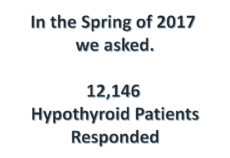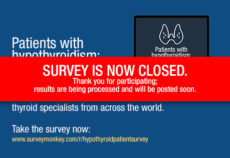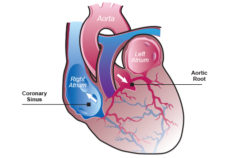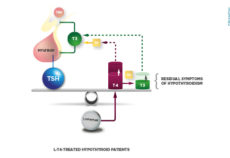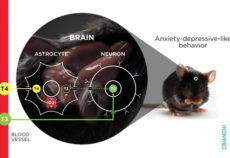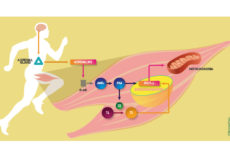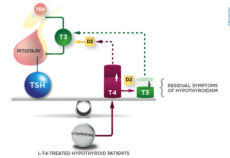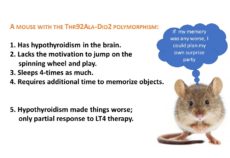
Genetic flaw causes problems for many with hypothyroidism. PMID: 30352046
Most patients who suffer from hypothyroidism respond favorably to treatment with levothyroxine. However, about 15% of the patients remain symptomatic despite taking the medication. In a study using mice, investigators found compelling evidence that the problem could be in a deiodinase gene polymorphism. This genetic flaw alters a key enzyme that activates T4 to T3. […]

